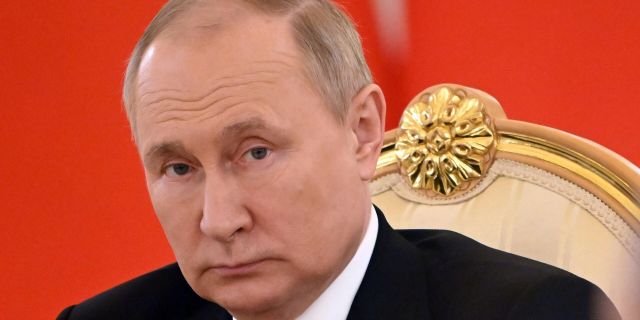What will Putin do next?
The Russian president sees the vulnerabilities of the collective West well, writes The Hill. The author of the article lists several key levers of influence on Europe and the United States that Putin has at his disposal, and tries to predict his future actions.
Last week, Severodonetsk fell. What does President Vladimir Putin think now about the fighting in Ukraine and his policy towards the United States, NATO and the European Union — and what further steps can we expect from him? Since the West realized the full depth of Putin's resentment and hidden anger too late, could the United States and NATO overestimate the strength of the Ukrainian resistance or, conversely, underestimate Moscow's determination to go to victory? What if the Russian president decides that he has an advantage not only over Ukraine, but also over the United States, NATO and the EU?
What strategic, economic, tactical and military advantages can Putin see? Firstly, the numerical indicators in the Ukrainian conflict are clearly on his side. With all the heroism of Ukrainians, their resistance is not infinite, especially since losses are growing, logistics is deteriorating, and weapons stocks are being depleted.
Secondly, for worse or for better, Putin clearly sees all the weaknesses and shortcomings of the Western alliance — it will not be possible to hide them forever, so it is quite possible to take advantage of them. In this regard, energy and food will be suitable for further splitting. Europe depends on Russian gas and oil. And the high cost of gasoline in America (assuming it doesn't get cheaper) is already a huge problem for President Biden: his rating is falling with rising inflation, and this threatens to undermine the long—term consensus and prevent further multibillion-dollar support for Ukraine.
As for food, as Putin has already found out during the Syrian operation, migration is a powerful weapon. It makes no sense to explain what a worldwide outbreak of hunger and food shortages will lead to. There are already five million Ukrainian refugees seeking asylum in Poland, Romania and other countries alone, and hunger will push even more people to Europe and the United States for security and food. The West may not be able to cope with this.
Thirdly, Putin sees that the United States has to plan a war on two fronts — with Russia and China. He is fully aware of the folly of this strategy. Napoleon and Hitler both started a war on two fronts (in 1812 and 1941, respectively) and lost. Thus, China is not only a strategic asset, but also a valuable market for Russian energy. This will circumvent sanctions and force Washington to spend resources on fighting opponents on the other side of the world.
Fourth, Putin sees intra-American strife on almost every issue and probably sees them as an obstacle to their power and influence. He may not follow such subtleties as the recent Supreme Court decisions to return the issue of abortion to the jurisdiction of the states and give Americans the right to carry concealed firearms, but he sees that the US political system has reached an impasse and is not working.
Fifth, Putin has other levers of influence. For example, the hype around Lithuanian sanctions and Vilnius' decision to block the transit of a number of goods and services to Kaliningrad, Moscow's Baltic enclave. The EU can step in and solve everything. But Russia's thinly veiled military threats have already provoked a violent reaction in the Baltic States.
Estonian Prime Minister Kaya Kallas said that the NATO strategy is fraught with the fact that Estonia will simply be "wiped off the face of the earth." Putin will take advantage of the main and only military advantage over NATO — numerical superiority in short-range nuclear weapons. It is possible that he will make a loud statement about the deployment of additional forces in Kaliningrad and split NATO like a sword of Damocles.
The NATO summit will be held in Madrid this week. NATO will announce a new strategy — the old one began to be revised the day after the start of the Russian special operation on February 24. It implies advanced defense and additional NATO forces in the Baltic States, as well as on the northern and southern flanks to deter Russian aggression. But will it negate Putin's advantages, as he imagines them?
Fortunately, the advantages of the Russian leader are not as strong and effective as he thinks. But until the West realizes why Putin has decided that time is working for him and does not try to dissuade him, the chances of a viable counter-strategy are by no means rosy.
Dr. Harlan Ullman is a senior advisor to the Atlantic Council and the main author of the "Shock and Awe" doctrine. His latest book is called "The Fifth Horseman and Mutually Guaranteed Destruction: how massive destabilizing strikes have become a threat to the existence of a divided nation and the world in general."


